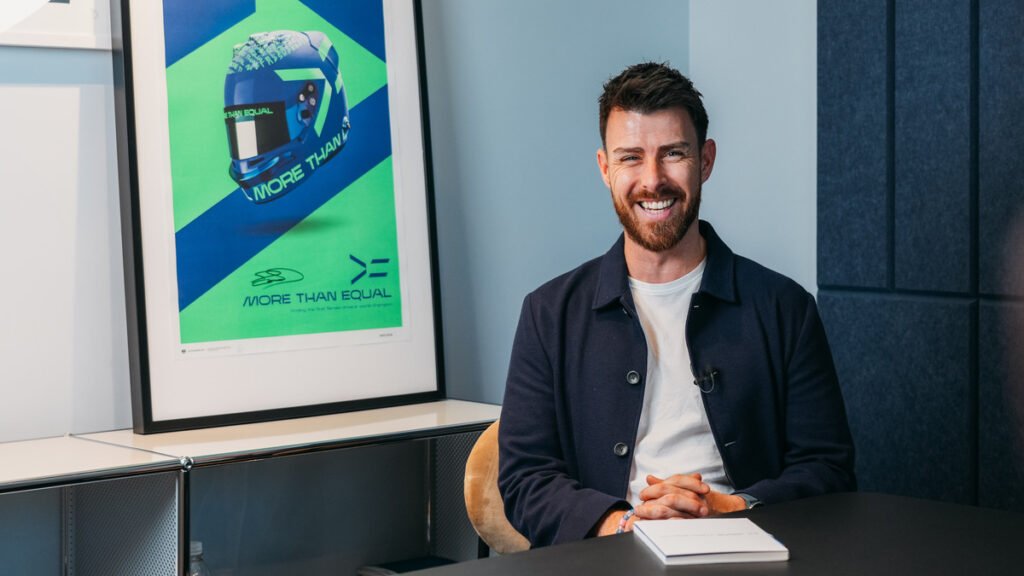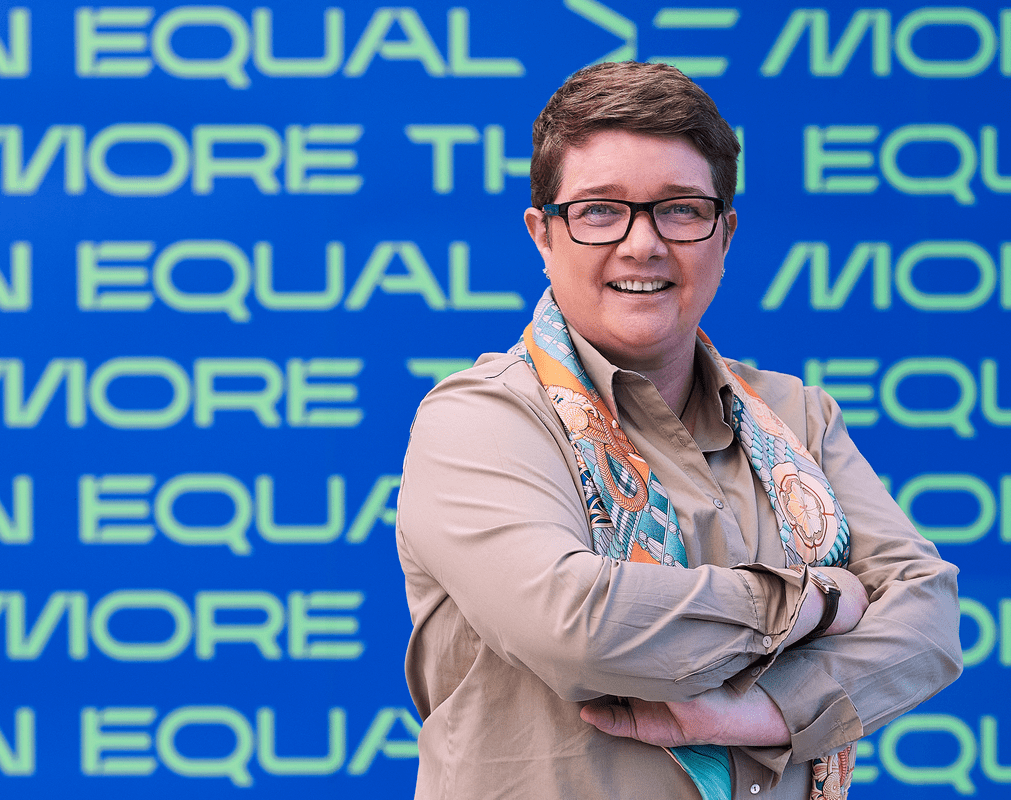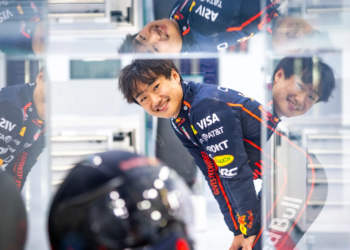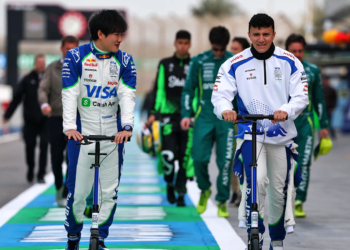More Than Equal is here to shake things up and in a big way. The organisation was co-founded by former Grand Prix winner David Coulthard and entrepreneur Karel Komarek and More Than Equal’s main objective is to develop the world’s first female Formula 1 Champion.
Motorsport Week had the pleasure to sit down with More Than Equal Board Member and Strategic Advisor Kate Beavan. Beavan boasts over 20 years of experience in F1’s legal, licensing and GSR projects and is the perfect person to help More Than Equal navigate what is a male-dominated arena.
The task ahead for More Than Equal is huge, given that a woman hasn’t competitively raced in F1 for practically half a century. This is a slight on what is supposed to be a gender-neutral sport and More Than Equal wants to address that imbalance. That started with an extensive global research programme and it will continue with a female driver development programme tailored to bring on the next wave of women racers.
An unconventional move sees the More Than Equal organisation comprised largely of members who have come in from outside of racing.
CEO Alison Donnelly brings experience from Sport England, Chair Karen Webb Moss from a background working with British Swimming and FIFA, and Driver Development Programme Head Tom Stanton has a proven track record working with British Cycling.
But what has this all got to do with motorsport?
Beavan explains.
“We made a decision right at the very beginning when More Than Equal was set up that if we were going to crack this we needed to bring in expertise from other fields,” Beavan said.
“Why? Because there isn’t a high-performance athlete programme in motorsport for girls. So let’s go and find somebody who’s built a high-performance athlete programme in another sport and apply that, everything they’ve learnt, to Formula One. And that’s Tom Stanton who came from British Cycling.
“But equally, our CEO, Alison Donnelly, never been to a Formula One race before she joined More Than Equal. Why did we recruit her? Because she’s got a stellar career in promoting women’s sport. She’s incredibly talented, she was Head of News at Number 10 Downing Street and worked for the Treasury.

“She was then a Director at Sport England, so was deeply involved in programmes like This Girl Can, which was all the government’s initiative to try and get females and girls more active. So her experience coming into More Than Equal really brought some deep knowledge of how to promote women’s sport.
“So we brought Karen Webb Moss, who is our chair. She came from the Olympic movement and I’ve known Karen for many years but she’s been deeply involved with the Olympics for many decades. She brought that experience to bear from other sports. So our objective from the beginning was to bring in the very best people we possibly could, regardless of their background, in order to tackle a problem that really hasn’t been tackled in motorsport.”
One space where women’s sports is on the rise is professional football, particularly on an international scale with the Women’s World Cup drawing plenty of interest, and the UEFA Euros before it. Beavan spoke of how she challenged broadcasters to spotlight female athletes and the response that was met with the request, which speaks volumes of the challenges being faced.
“I remember having a conversation with the BBC and saying to them, ‘well, you know, you didn’t cover women’s sport, you didn’t show any women’s sport, and they said, ‘well, because we didn’t think anyone would watch it.’ And I was like, ‘well, they’re watching it now.’ So it’s a little bit of chicken and egg, isn’t it? You need people to believe in it and invest in it and cover it and then it will help it rise in popularity and all the good commercial stuff that comes from that.”
But, as Beavan argues, “gender-neutral sports are slightly different.”
The conversation being had is whether women can compete and win. Of course, they can, but coming back to the chicken and egg analogy, sometimes it takes visual evidence to prove the theory.
“You look at horse racing,” said Beavan. “Now, Rachel Blackmore won the Grand National convincingly, first female jockey. And again, this is something that Ali [Donelly] talks about. In horse racing, the narrative around women racing was all about whether a woman can race at the very, very top level. Can they be competitive at the top level of horse racing? And there was huge debate about that in the industry.
“Rachel Blackmore goes and wins. She doesn’t just win, she triumphs convincingly. The narrative in horse racing has completely changed now.
“They’re not even debating whether a woman can do it because clearly they can. They’re now talking about, well, how do we make more of that? That’s very equivalent to what we’re trying to do in Formula One and with More Than Equal. The narrative, and there is a narrative about whether a woman can actually compete at Formula One level.
“That’s why our focus is to get a woman competing and winning in Formula One, because we need to change that narrative and we need to knock that myth on the head, get a woman winning in Formula One, a world championship, and then the narrative will change to how do we get more of that, not whether it can be done.”

That narrative is already starting to change in other motorsport series given the massive success of the Iron Dames all-female racing project in sportscars.
Last year the Dames became the first all-female crew to win in the FIA World Endurance Championship thanks to Sarah Bovy, Michelle Gatting and Rahel Frey’s success in GTE’s swansong at the Eight Hours of Bahrain.
Beavan paid tribute to Iron Dames’ founder Deborah Mayer sterling efforts which serve as a huge inspiration to More Than Equal. Still, getting a female winner into F1 is another level, one that can break barriers in the mainstream – globally.
“Mayer is an absolute heroine with what she’s done,” said Beavan. “She’s put her money where her mouth is, she’s invested in female talent, she’s demonstrated what can be done when you do that, and that they can win competitively against men, and hats off to her for doing that. And you’re absolutely right that that is a major story, but it’s not as big as Formula One.
“So until Formula One does it, you haven’t done it, you know. It’s really heartening to see what Deborah Mayer is doing, and it’s brilliant, brilliant work, and it feeds into what we’re saying, which is there is nothing, you know, physical stopping women competing at the highest level in Formula One. We need to now not just say it, we need to demonstrate that in order to get the kind of success that Deborah has had.”
Beavan’s determination and spirit are representative of the entire More Than Equal organisation. The drive here to inspire the motorsport community to be better, and elevate female racing athletes, is huge. One can’t help but be swept up in it and pledge support. It is also becoming increasingly clear that despite it being a long road ahead, More Than Equal will succeed.









